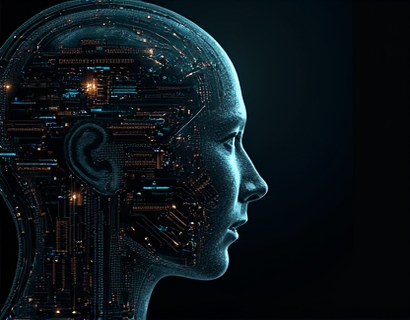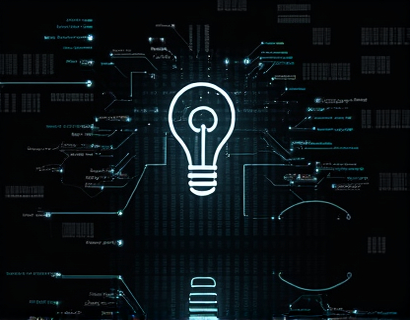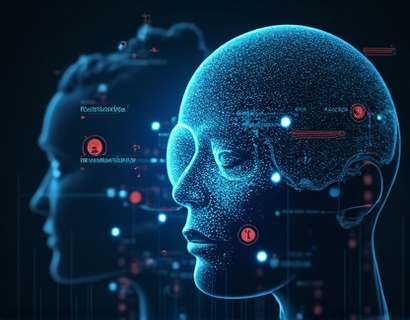AI-Powered Adversarial Chat: A New Frontier in Strategic Conflict Resolution
The landscape of conflict resolution is undergoing a transformative shift with the advent of AI-powered adversarial chat platforms. These innovative virtual environments leverage the power of artificial intelligence to provide users with personalized strategies and insights, enabling them to navigate and resolve complex adversarial situations with unprecedented confidence and effectiveness. This article delves into the capabilities and potential of such platforms, exploring how they can revolutionize both personal and professional conflict resolution scenarios.
Understanding Adversarial Situations
Adversarial situations are inherently complex, involving conflicting interests, emotions, and perspectives. These scenarios can range from high-stakes business negotiations to personal disputes and international diplomacy. Traditional methods of conflict resolution often rely on human mediators or predefined strategies, which may not always account for the nuances and dynamics of each unique situation. AI-powered adversarial chat platforms address this gap by offering a dynamic, adaptive approach to conflict resolution.
How AI-Powered Adversarial Chat Works
At the core of these platforms is advanced artificial intelligence designed to simulate human-like conversation and strategic thinking. The AI engages users in a dialogue, presenting scenarios, questions, and potential solutions. Through machine learning algorithms, the AI analyzes user responses, learning from each interaction to refine its recommendations. This continuous learning process ensures that the insights provided are not only relevant but also tailored to the user's specific context and preferences.
Personalized Strategy Development
One of the key advantages of AI-powered adversarial chat is its ability to develop personalized strategies for conflict resolution. By understanding the user's background, goals, and communication style, the AI can craft customized approaches that align with the user's strengths and weaknesses. For instance, in a professional setting, the AI might suggest specific negotiation tactics or argumentation techniques based on the user's past performance and the characteristics of the opposing party.
Enhancing Decision-Making Skills
Engaging with an AI adversary not only provides immediate solutions but also serves as a powerful tool for enhancing decision-making skills. Users are exposed to a variety of scenarios and must think critically to navigate them. This process fosters a deeper understanding of conflict dynamics and improves the user's ability to make informed decisions under pressure. Over time, this can lead to more effective conflict resolution in real-world situations.
Real-World Applications
The applications of AI-powered adversarial chat extend beyond theoretical scenarios. In the business world, executives can use these platforms to prepare for high-stakes negotiations, such as mergers and acquisitions or international trade deals. The AI can simulate different negotiation paths, helping executives anticipate and counteract potential moves by opposing parties. In personal contexts, individuals facing relationship issues or family disputes can benefit from the AI's guidance in managing emotions and finding common ground.
Conflict Resolution in Complex Environments
Complex conflict environments, such as those involving multiple stakeholders with diverse interests, pose significant challenges. AI-powered adversarial chat platforms excel in these scenarios by modeling the interactions between multiple parties and identifying optimal resolution paths. The AI can consider a wide range of variables, including historical data, current dynamics, and potential future developments, to provide comprehensive insights. This holistic approach ensures that no critical factor is overlooked, increasing the likelihood of a successful resolution.
Building Emotional Intelligence
Conflict resolution is not just about logic and strategy; it also involves emotional intelligence. AI-powered adversarial chat platforms can help users develop their emotional skills by simulating emotionally charged scenarios. The AI can provide feedback on the user's emotional responses, suggesting ways to manage stress, anger, or frustration. This dual focus on strategic and emotional aspects of conflict resolution makes these platforms invaluable tools for personal growth and professional development.
Case Studies and Success Stories
While this article does not promote specific platforms, numerous case studies and anecdotal evidence highlight the effectiveness of AI-powered adversarial chat in real-world scenarios. For example, a multinational corporation used such a platform to prepare its leadership team for a contentious board meeting. The AI simulated various debate scenarios, helping the team refine their arguments and collaborate more effectively. The result was a more cohesive and confident presentation, leading to a successful outcome.
In another instance, a non-profit organization facing internal disagreements over strategic direction utilized an AI adversary to mediate discussions. The AI facilitated a structured dialogue, ensuring all voices were heard and fostering a collaborative environment. The organization reported a significant improvement in team cohesion and a clearer path forward.
Challenges and Considerations
Despite the numerous benefits, the implementation of AI-powered adversarial chat platforms is not without challenges. One key consideration is the quality and diversity of the data used to train the AI. Biased or incomplete data can lead to suboptimal recommendations. Additionally, users must be aware that while the AI provides valuable insights, human judgment and ethical considerations remain crucial in conflict resolution. It is essential to maintain a balance between AI-driven suggestions and human intuition.
Future Developments
The field of AI-powered conflict resolution is rapidly evolving, with ongoing research and development aimed at enhancing the capabilities of these platforms. Future advancements may include more sophisticated emotional intelligence algorithms, integration with other AI technologies such as natural language processing and computer vision, and expanded applications in areas like cybersecurity and public policy. As these technologies mature, the potential for AI to transform conflict resolution will continue to grow.
Conclusion
AI-powered adversarial chat platforms represent a significant leap forward in the field of conflict resolution. By providing personalized strategies, enhancing decision-making skills, and offering insights into complex scenarios, these platforms empower users to navigate adversarial situations with greater confidence and effectiveness. As the technology continues to evolve, its impact on both personal and professional contexts is likely to be profound, shaping the future of how we approach and resolve conflicts.











































